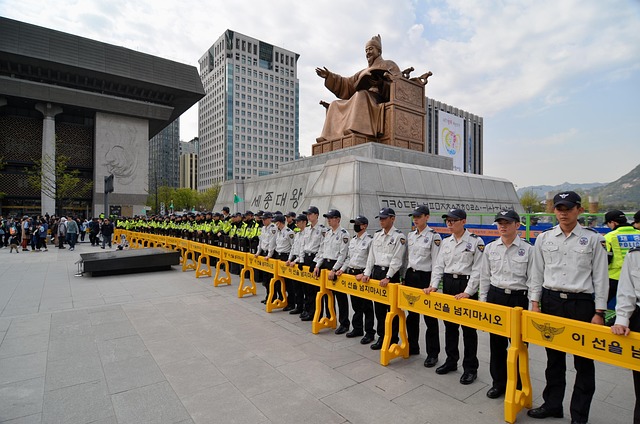Plea negotiations, a strategic alternative to trials in criminal law, offer defendants reduced sentences or charge dismissal. This process involves discussions between defendant, attorney, and prosecution to reach mutually agreeable solutions outside court. Impact on trial outcomes varies based on evidence strength, sentencing options, and defense strategies, with potential benefits and risks for both prosecutors and defendants. Understanding these dynamics is crucial for maintaining fairness, efficiency, and ethical integrity within the legal system, especially in high-profile cases.
“Unravel the intricate world of criminal law through the lens of plea negotiations—a pivotal aspect shaping trial outcomes. This comprehensive article delves into the strategic process, exploring its purpose and impact on both accused individuals and prosecutors. We dissect factors influencing these agreements, present real-world case studies, and examine ethical boundaries. Understanding how plea negotiations affect trial outcomes is essential for navigating this delicate balance in the criminal justice system.”
- Understanding Plea Negotiations: The Process and its Purpose
- Factors Influencing Plea Bargains: A Balancing Act for Both Parties
- Impact on Trial Outcomes: When a Deal is Reached
- Case Studies: Exploring Real-World Scenarios of Plea Negotiation Successes and Failures
- Ethical Considerations and Future Implications: Are There Limits to Plea Bargaining?
Understanding Plea Negotiations: The Process and its Purpose
Plea negotiations are a critical aspect of criminal law cases, offering an alternative to a full trial. This process involves discussions between the defendant, their attorney, and the prosecution to reach a mutually acceptable agreement. The primary goal is to resolve the case without going to court, which can significantly impact the trial outcome. By negotiating a plea bargain, defendants may secure a reduced sentence or even achieve a complete dismissal of all charges.
This strategy is particularly beneficial in high-stakes cases where the consequences are severe. Plea negotiations allow for a more controlled and strategic approach, enabling both parties to avoid the uncertainties and potential risks associated with trials. As such, understanding this process is essential for ensuring fairness within the legal system and fostering trust between the philanthropic and political communities.
Factors Influencing Plea Bargains: A Balancing Act for Both Parties
Plea bargains, a cornerstone of criminal law, involve a delicate balancing act for both prosecutors and defendants. Several factors influence these negotiations, which ultimately shape trial outcomes. For prosecutors, striking an effective plea deal requires considering the strength of evidence, potential sentences, and the defendant’s willingness to cooperate in other cases. Accepting a plea bargain can lead to quicker resolutions, saving judicial resources while ensuring some measure of justice for victims.
On the other hand, defendants must weigh the benefits of a reduced sentence or avoiding trial against the potential consequences of pleading guilty. This decision is especially crucial for corporate and individual clients facing white-collar charges, where winning challenging defense verdicts can be complex. The balance shifts towards mitigating punishment and preserving reputation, especially in cases with strong defensive arguments. Plea negotiations, thus, demand strategic thinking and a deep understanding of both the law and the defendant’s interests.
Impact on Trial Outcomes: When a Deal is Reached
In criminal law, the outcome of a trial is significantly influenced by whether a deal is reached through plea negotiations. Plea bargaining has become a cornerstone of the justice system, especially in high-stakes cases involving white collar offenses and complex crimes within philanthropic and political communities. This strategy allows for a more efficient administration of justice by reducing the backlog of cases and providing an alternative to lengthy trials.
When defendants enter into a plea agreement, they often receive reduced charges or a lighter sentence in exchange for their guilty plea. This outcome can be seen as a win-win for both parties; the prosecution secures a conviction, while the defendant avoids the potential consequences of a trial verdict and sometimes receives a more favorable outcome. However, it’s crucial to note that plea negotiations do not guarantee a positive result, particularly if the evidence against the defendant is strong. Thus, understanding the dynamics of these negotiations is essential for both legal professionals and those interested in the criminal justice system.
Case Studies: Exploring Real-World Scenarios of Plea Negotiation Successes and Failures
Case studies offer a compelling window into the real-world application of plea negotiations, highlighting both successes and failures. These scenarios illustrate how strategic negotiations can significantly impact trial outcomes. For instance, consider a case where a skilled defense attorney successfully pleads a client guilty to a lesser charge, avoiding a potentially harsher sentence. This strategy not only wins a challenging defense verdict but also ensures his clients’ freedom with minimal consequences.
Conversely, missteps in plea negotiations can lead to adverse results. In some scenarios, defendants may reject reasonable offers, leading to trials that result in unfavorable verdicts. Understanding these outcomes is crucial for both legal professionals and individuals facing criminal charges, as it underscores the importance of informed decision-making during plea discussions, ultimately shaping the trajectory of their legal battles.
Ethical Considerations and Future Implications: Are There Limits to Plea Bargaining?
The practice of plea bargaining has long been a contentious issue within criminal law, raising ethical considerations and sparking debates about its impact on trial outcomes. While it offers a pathway to resolution for both prosecutors and defendants, critics argue that it can undermine the integrity of the justice system. The question arises: are there limits to plea negotiations?
One perspective suggests that plea bargaining provides a necessary compromise, allowing for more efficient case management and reducing the burden on courts and legal resources. However, others contend that it may result in unfair outcomes, especially when defendants accept plea deals without fully understanding the implications. This is particularly concerning as research indicates that how plea negotiations affect trial outcomes can be profound, sometimes leading to the complete dismissal of all charges or reduced sentences. Ensuring that clients are adequately advised and that plea agreements are fair and just remains a critical ethical consideration for legal professionals navigating these complex cases.
Plea negotiations are a pivotal aspect of criminal law, offering a strategic pathway towards efficient case resolution. As demonstrated through case studies and historical trends, understanding the intricate balancing act involved in these negotiations is key to recognizing their profound impact on trial outcomes. By exploring both successes and failures, we gain valuable insights into the ethical considerations that underpin plea bargaining, prompting a reevaluation of its limits and potential future adaptations in the legal landscape. Ultimately, the effective navigation of plea negotiations can lead to more favorable resolutions for all parties involved.






